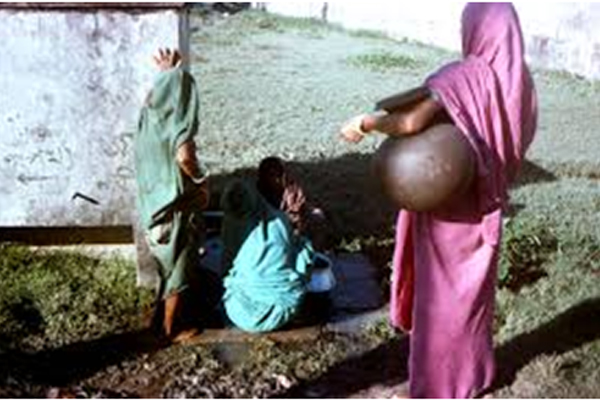|
Are We Committed To End Violence Against Women Migrant Workers?
Women migrant workers face double discrimination, which may lead to exploitation, sexual violence and harassment, says Deepa Bharathi, ILO chief technical adviser in the regional office for Asia and the Pacific.
Almost 5 million migrants in the Association of Southeast Asian Nations (ASEAN) region are women who contribute significantly to the economies of both their countries of origin and destination.
While gender-based violence can happen to anyone, anywhere, some women, such as migrant workers, can be particularly at risk of it. Why? Our societies continue to tell us that women and women’s work are worth less than men and men’s work. Our societies continue to tell us that migrants and migrants’ work are worth less than nationals and nationals’ work. Discrimination hits a migrant woman on two fronts – that of her gender and that of her nationality.
The positive experiences and valuable contributions women migrant workers make to our communities can only be ensured if their human rights are fully respected and protected. However, violence against women (VAW) persists in migration – both in pushing women into precarious migration, and as part of their labour migration experience, especially when they find they are not protected by labour laws.
Looking at one sector in particular, migrant domestic work in all ASEAN countries is singled out by law as exempt from all or part of labour laws that apply to other workers. While efforts to prevent and respond to violence against women in the region are growing, we know that, for instance, migrant domestic workers who are not fully covered by labour laws often do not trust that they will find justice if they report a situation of labour exploitation, much less other kinds of violence. Research examining over 7,000 ASEAN migrant workers’ complaints in 2017 shows that women are half as likely to go to the government for help as men.
VAW can be physical, sexual and psychological, including domestic violence, sexual violence, and harassment. It can also be economic, including forced labour, trafficking, withholding of pay, under or non-payment, and discrimination at work. In terms of discrimination at work, a 2017 study tells us that migrant men across the Mekong Subregion countries earn 14 per cent higher wages per month than women, and this gender gap is higher in some nationalities. Migrant men from Myanmar, for example, earn 36 per cent more than migrant women from Myanmar.
VAW is deeply rooted in the unequal division of power and resources between men and women. Migration brokers and recruiters, employers, spouses and partners, and others are part of these power relationships. If not reined in by gender-equitable and migrant-equitable labour laws, none of these actors have a reason, beyond their own ethics, to ensure women migrant workers receive due pay, fair recruitment procedures, and decent working conditions.
Aiming to ensure that labour migration is safe and fair for all women in ASEAN, the EU-funded Spotlight Initiative to eliminate violence against women and girls launched a new programme in ASEAN. The programme ‘Safe and Fair ’ is being implemented through a partnership between the International Labour Organization and UN Women in ASEAN. Guided by the 2030 Agenda for Sustainable Development of “leaving no one behind”, it works with women migrant workers, innovating rights-based solutions to improve their lives.
Safe and Fair is trying to incentivize changes in the balance of power in society’s many inter-relationships – between men and women, employers and workers, locals and migrants. Labour migration policies that promote gender equality, equal pay for equal work, women’s representation in decision-making positions and women’s access to decent work, is fundamental in transforming social and cultural norms and gender stereotypes. We must promote a dignified culture free from gender biases, violence and harassment against women to ensure their well-being and fair treatment.
With today marking International Migrants Day, the time is now for ASEAN member states and institutions, workers, employers and civil society to come together to realize the rights and opportunities of women migrant workers.
|



